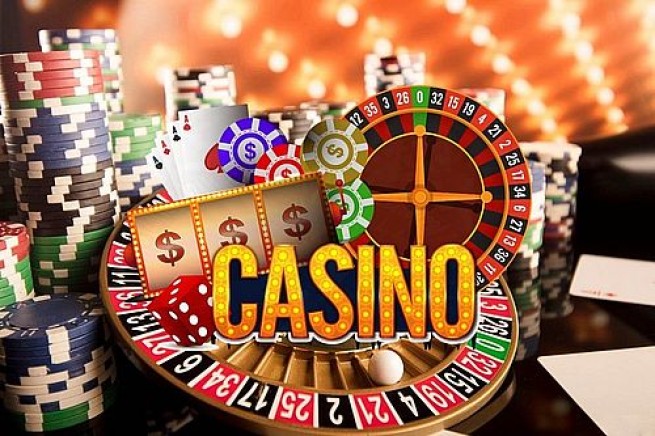
The Fascinating Insights of Libet: Unraveling Free Will
In the realm of neuroscience, few studies have generated as much discussion and controversy as those conducted by the pioneering psychologist Benjamin Libet. His investigations into the nature of consciousness, free will, and the brain’s decision-making processes have sparked myriad debates among experts and laypeople alike. Libet’s work, particularly his experiments on the readiness potential, has profound implications for how we perceive human agency. To delve into the intricacies of Libet’s research and its significance, it’s essential to unravel the layers of complexity surrounding his findings. For more engaging insights, visit Libet https://libetcasino.com/.
I. The Genesis of Libet’s Experiments
In the 1980s, Benjamin Libet conducted a series of groundbreaking experiments aimed at understanding the brain’s role in voluntary actions. His most famous experiment involved attaching electrodes to the scalps of participants to measure brain activity while they performed a simple motor task, such as flexing their wrist. The participants were asked to note the exact moment they became aware of their intention to move, as well as the time the movement actually occurred. This seemingly straightforward experiment led to astonishing results that challenged long-held beliefs about free will and consciousness.
II. Understanding Readiness Potential

At the core of Libet’s findings is a phenomenon known as ‘readiness potential,’ a specific brain activity that precedes voluntary movement. This neurophysiological signal can be detected in the EEG recordings of participants up to 500 milliseconds before they consciously decide to act. Libet’s results indicated that the brain initiates the process of movement before individuals report being aware of their intention to move. This raised profound questions: If our brain essentially “decides” to act before we consciously agree to the action, what does that imply for our understanding of free will?
III. Free Will: An Illusion?
Libet’s conclusions led to the intriguing suggestion that free will may not be as absolute as we believe. While individuals might feel as if they are making conscious decisions, Libet’s experiments suggested that the brain had already set the wheels in motion prior to conscious awareness. This insight challenges traditional notions of autonomy and self-determination, prompting debates across philosophical, psychological, and neuroscientific fields. Philosophers have grappled with questions such as: If our actions are initiated subconsciously, can we truly be held responsible for them?
IV. The Interpretation of Libet’s Findings
Despite the implications of Libet’s findings, he himself was cautious in declaring that free will is merely an illusion. He introduced a concept referred to as ‘will’ that emphasizes the role of consciousness in vetoing or consenting to actions initiated by the brain. This suggests a more nuanced view of free will—while the brain may generate intentions outside our conscious awareness, we still have the ability to inhibit or act upon those intentions. This distinction is vital in discussions surrounding moral responsibility and personal accountability.
V. Criticisms and Alternative Perspectives
Libet’s experiments have not been without criticism. One major critique revolves around the interpretation of the readiness potential. Some researchers argue that the readiness potential does not necessarily equate to a decision to act; rather, it could reflect preparatory activity of the brain that doesn’t lead to actual movement. Others question the ecological validity of Libet’s experimental setup, suggesting that tasks involving complex decision-making processes are far more representative of real-life situations than simple wrist movements.
VI. The Legacy of Libet’s Research
Regardless of the criticisms, Libet’s research has had a lasting impact on the fields of psychology, neuroscience, and philosophy. His findings have sparked further research into the nature of consciousness, decision-making, and the intricate workings of the human brain. Scholars are still exploring the myriad ways in which subconscious processes influence conscious experience and how these insights can be reconciled with a sense of agency.
VII. Modern Implications and Future Directions
The implications of Libet’s work extend beyond philosophical debates; they influence various domains, including psychology, artificial intelligence, and even legal practices. Understanding the neural basis of decision-making can enhance therapeutic approaches for conditions that affect impulse control and self-regulation. In artificial intelligence, discussions surrounding free will and autonomy are crucial in developing ethical frameworks for machine decision-making. The exploration continues, and as technology evolves, so too will our understanding of consciousness and human agency.
VIII. Conclusion: A Journey into Understanding
Benjamin Libet’s explorations into the nature of free will and consciousness have undoubtedly altered the landscape of our understanding of human behavior. His experiments invite us to reconsider the relationship between brain activity, conscious decision-making, and personal agency. While questions remain unanswered, and debates continue, Libet’s legacy persists in the ongoing pursuit of knowledge in the realms of psychology and neuroscience. The dialogue he initiated remains vital as we seek to understand the complexities of human nature in an increasingly complicated world.